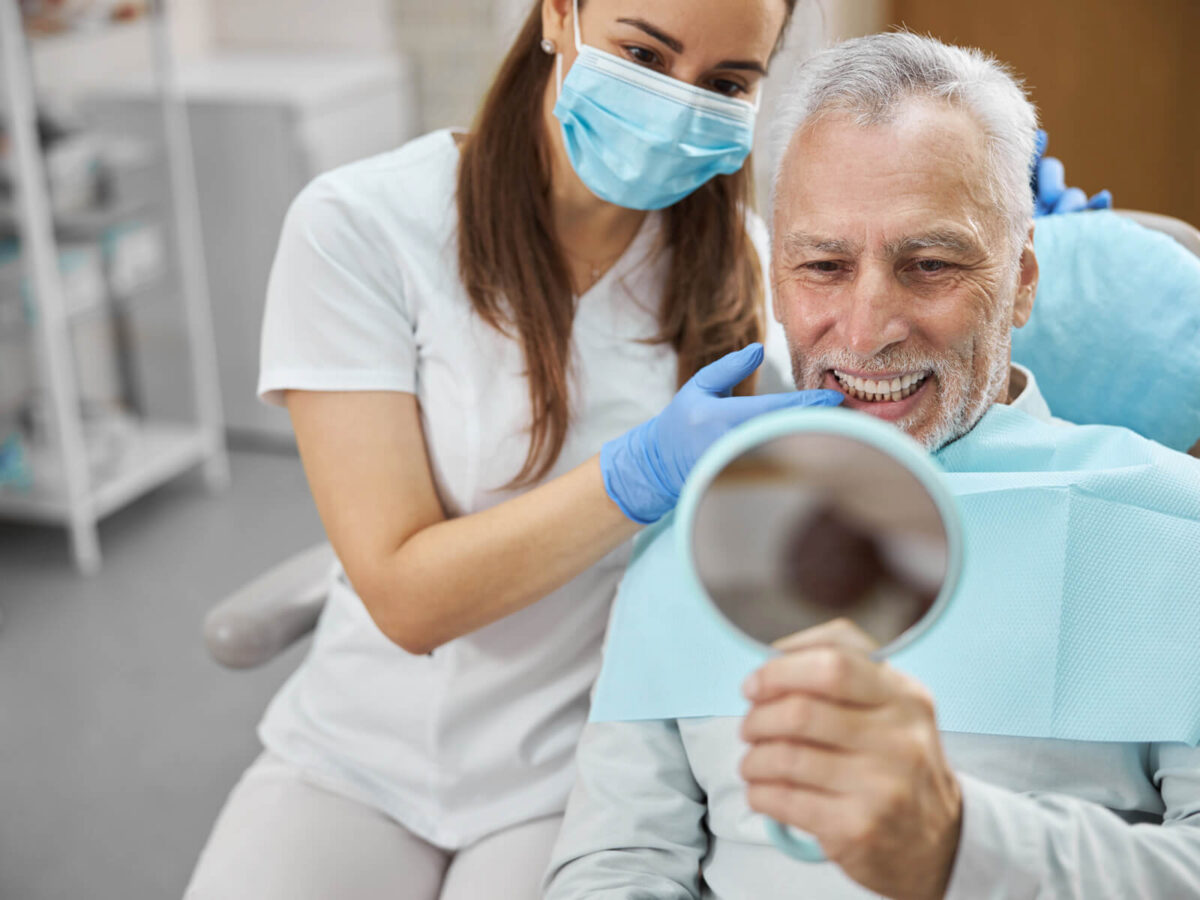Blog
Dental hygiene tips for healthy teeth & gums

How To Maintain Great Dental Health As You Age?
As you age, maintaining good dental health becomes increasingly important, as the natural aging process can present unique challenges for oral health. To address these challenges and ensure excellent dental health as you grow older, it’s essential to adapt your dental care practices accordingly. This article aims to provide seniors with strategies to reduce the risk of dental issues, including cavities and gum disease, and maintain optimal oral health.
Commit to a Regular Oral Hygiene Routine:
Start with a consistent and thorough oral hygiene regimen. Brush your teeth with fluoride toothpaste and a soft-bristled toothbrush at least twice daily. Spend a minimum of two minutes brushing to effectively remove plaque and food debris. Don’t forget to brush your gums and tongue as well.
Daily Flossing:
Daily flossing is crucial to remove food particles and plaque from between your teeth and around the gumline. It helps prevent cavities and gum disease. If traditional flossing is challenging, consider using alternative methods like floss picks, interdental brushes, or a water flosser.
Stay Hydrated:
Saliva plays a vital role in maintaining oral health by washing away bacteria. As saliva production may decrease with age, staying adequately hydrated throughout the day helps keep your mouth moist and supports healthy saliva production.
Quit Smoking:
Tobacco use, whether through cigarettes or chewing tobacco, is associated with an increased risk of periodontal disease, oral cancer, and tooth loss. Quitting smoking not only benefits your overall health but also helps preserve your dental health as you age.
Limit Acidic and Sugary Foods:
A diet high in sugar and acidic foods can contribute to tooth decay and enamel erosion. Minimize your consumption of sugary snacks, fizzy drinks, and acidic foods. Opt for tooth-friendly choices such as dairy products, fruits, vegetables, and whole grains.
Regular Dental Checkups:
Maintain a schedule of regular dental checkups, as recommended by your dentist. Regular exams can help detect issues early and address them before they worsen, potentially saving you from more extensive and costly treatments.
Review Medications:
Certain medications can have side effects that impact your oral health, such as dry mouth. Discuss your medications with your healthcare provider or dentist to explore alternatives or strategies to mitigate their effects.
Address Dry Mouth:
Dry mouth, or xerostomia, is a common issue among seniors and can contribute to dental problems. Consider using sugar-free gum, oral moisturizers, or prescription treatments to alleviate dry mouth symptoms and protect your oral health.
Consider Dentures or Partials:
If you have missing teeth, dentures or partial dentures can help restore your ability to eat and speak comfortably. Proper maintenance of these dental prosthetics is essential to prevent gum irritation and infection.
Manage Systemic Diseases:
Certain systemic diseases, such as diabetes and cardiovascular disease, can affect oral health. Managing these conditions effectively and following your doctor’s recommendations can help reduce their impact on your dental health.
Care for Dentures:
If you wear dentures, daily cleaning and maintenance are crucial to prevent gum irritation and infection. Follow your dentist’s instructions for caring for your dentures.
Conclusion:
Adopting these strategies can help seniors maintain excellent dental health as they age. Good oral hygiene practices, a balanced diet, and regular dental checkups are essential components of maintaining a healthy smile well into old age.


